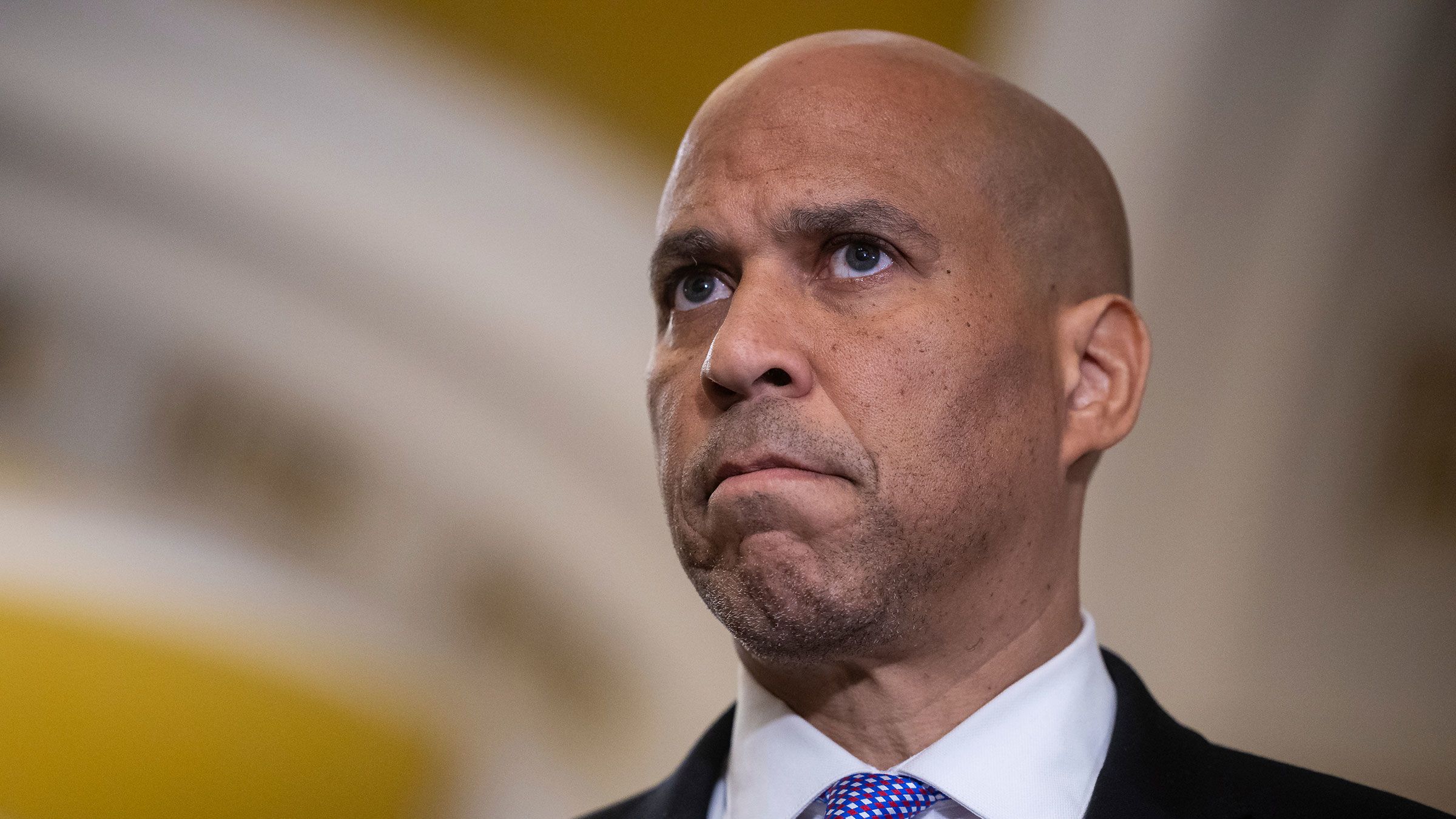
Top Trump officials discussed Epstein at White House meeting Wednesday night
Entities mentioned:
- Attorney General Pam Bondi: Justice, Professional pride, Power
- FBI Director Kash Patel: Duty, Control, Security
- Vice President JD Vance: Unity, Influence, Obligation
- White House chief of staff Susie Wiles: Control, Loyalty, Unity
- Deputy Attorney General Todd Blanche: Justice, Duty, Professional pride
- Deputy FBI Director Dan Bongino: Security, Control, Professional pride
- Jeffrey Epstein: Power, Greed, Control
- Ghislaine Maxwell: Self-preservation, Loyalty, Fear
Article Assessment:
Credibility Score: 65/100
Bias Rating: 50/100 (Center)
Sentiment Score: 35/100
Authoritarianism Risk: 55/100 (Mixed/Neutral)
Bias Analysis:
The article presents a balanced view of the situation, citing unnamed sources and reporting denied claims. It refrains from overtly partisan language or framing, maintaining a neutral stance in its reporting of the events and conflicts.
Key metric: Government Transparency and Accountability
As a social scientist, I analyze that this article reveals internal tensions and strategic disagreements within the Trump administration regarding the handling of the high-profile Epstein case. The last-minute change of meeting location to the White House suggests a desire for increased control over information and optics. The potential publication of the Maxwell conversation transcript indicates a struggle between transparency and strategic information management. The conflicts between top officials, particularly Bondi and Patel, highlight the challenges in coordinating a unified response to a sensitive and politically charged issue. This situation underscores the complexities of balancing justice, political considerations, and public perception in high-level government operations.

What to expect next in Texas’ redistricting standoff and whether Democrats can be expelled
Entities mentioned:
- Texas Republicans: Power, Control, Loyalty
- Texas Democrats: Justice, Righteousness, Determination
- Gov. Greg Abbott: Power, Control, Ambition
- President Donald Trump: Power, Influence, Competitive spirit
- Vice President JD Vance: Ambition, Loyalty, Influence
- Dustin Burrows: Duty, Control, Loyalty
- Ken Paxton: Loyalty, Power, Ambition
- Gene Wu: Righteousness, Duty, Justice
- Brian Harrison: Ambition, Competitive spirit, Loyalty
- Ramón Romero: Justice, Righteousness, Determination
- Lulu Flores: Determination, Justice, Duty
- Richard Peña Raymond: Unity, Duty, Pragmatism
- Chad Dunn: Justice, Professional pride, Righteousness
- Quinn Yeargain: Professional pride, Curiosity, Justice
Article Assessment:
Credibility Score: 75/100
Bias Rating: 45/100 (Center)
Sentiment Score: 35/100
Authoritarianism Risk: 60/100 (Mixed/Neutral)
Bias Analysis:
The article presents both Republican and Democratic perspectives, quoting multiple sources from each side. While it leans slightly towards the Democratic viewpoint by giving more space to their justifications, it still maintains a relatively balanced approach.
Key metric: Electoral Integrity
As a social scientist, I analyze that this redistricting standoff in Texas highlights the intense political polarization and the struggle for power between Republicans and Democrats. The GOP's efforts to redraw districts in their favor and the Democrats' attempts to block this process by leaving the state demonstrate the high stakes of redistricting in shaping future electoral outcomes. This conflict raises significant concerns about the fairness of the electoral process and the potential for gerrymandering to undermine democratic representation. The legal threats and potential removal of elected officials further escalate the situation, potentially setting dangerous precedents for political retaliation. This redistricting battle in Texas could have far-reaching implications for electoral integrity across the United States, as other states watch and potentially follow suit in their own redistricting processes.

Witkoff meets with Putin as Trump’s sanctions threat looms
Entities mentioned:
- Donald Trump: Power, Control, Determination
- Steve Witkoff: Duty, Influence, Ambition
- Vladimir Putin: Power, Control, Self-preservation
- Volodymyr Zelensky: Self-preservation, Determination, Unity
- Kirill Dmitriev: Duty, Loyalty, Influence
- Dmitry Medvedev: Loyalty, Influence, Power
- Marco Rubio: Professional pride, Influence, Duty
- Scott Bessent: Duty, Influence, Professional pride
- Xi Jinping: Power, Influence, Unity
- Keith Kellogg: Duty, Influence, Professional pride
Article Assessment:
Credibility Score: 75/100
Bias Rating: 45/100 (Center)
Sentiment Score: 35/100
Authoritarianism Risk: 25/100 (Generally Democratic)
Bias Analysis:
The article presents multiple perspectives and cites various sources, including state media and unnamed officials. While it leans slightly towards a US-centric view, it attempts to provide balanced coverage of the complex situation.
Key metric: International Relations Score
As a social scientist, I analyze that this article highlights the complex dynamics of international relations, particularly between the US and Russia. The potential for new sanctions against Russia and the diplomatic efforts to avoid them demonstrate the delicate balance of power and negotiation in global politics. Trump's approach, combining threats of sanctions with diplomatic outreach, reflects a strategy of creating leverage. The involvement of other countries like China and India in Russian energy purchases adds layers of complexity to the situation. This diplomatic dance has significant implications for global stability, economic relations, and the ongoing conflict in Ukraine.

Texas House Dems faced potential bomb threat in Illinois, police say
Entities mentioned:
- Texas House Democrats: Determination, Justice, Duty
- St. Charles Police: Duty, Security, Professional pride
- Gene Wu: Unity, Determination, Security
- Ramón Romero: Unity, Determination, Security
- Barbara Gervin Hawkins: Unity, Determination, Security
- John Bucy: Determination, Justice, Indignation
- Ann Johnson: Determination, Justice, Indignation
- Ken Paxton: Power, Control, Righteousness
- JB Pritzker: Security, Duty, Justice
- Texas House Republicans: Power, Control, Competitive spirit
Article Assessment:
Credibility Score: 75/100
Bias Rating: 45/100 (Center)
Sentiment Score: 35/100
Authoritarianism Risk: 40/100 (Generally Democratic)
Bias Analysis:
The article presents statements from multiple sides, including Democrats and law enforcement. However, it gives more space to Democratic perspectives, which slightly tilts the overall tone.
Key metric: Political Polarization Index
As a social scientist, I analyze that this incident highlights the increasing political polarization in the United States, particularly in Texas. The evacuation of Texas House Democrats due to a bomb threat while in another state for a quorum break demonstrates the escalating tensions between political parties. The rhetoric used by officials, such as the Texas Attorney General's statement to 'hunt down' the Democrats, contributes to a climate of fear and hostility. This event may further entrench partisan divisions, potentially impacting legislative processes and democratic norms. The incident also raises concerns about the safety of elected officials and the potential chilling effect on political participation and discourse.

Trump administration to reinstall two Confederate statues
Entities mentioned:
- Trump administration: Control, Legacy, Pride
- Donald Trump: Power, Legacy, Influence
- US National Park Service: Duty, Obligation, Professional pride
- Pete Hegseth: Loyalty, Righteousness, Influence
- Glenn Youngkin: Pride, Legacy, Influence
- Biden administration: Justice, Unity, Righteousness
- Eleanor Holmes Norton: Justice, Moral outrage, Determination
Article Assessment:
Credibility Score: 75/100
Bias Rating: 55/100 (Center)
Sentiment Score: 35/100
Authoritarianism Risk: 65/100 (Authoritarian Tendencies)
Bias Analysis:
The article presents multiple viewpoints, including those supporting and opposing the reinstatement of Confederate monuments. However, there's a slight lean towards critical perspectives of the action, particularly in the detailed explanation of the monuments' controversial aspects.
Key metric: Social Cohesion
As a social scientist, I analyze that this article highlights a significant regression in social progress and national unity. The reinstatement of Confederate monuments, particularly in the aftermath of widespread protests against racial injustice, signals a deliberate attempt to reassert narratives that many view as supportive of systemic racism. This action is likely to exacerbate existing social tensions, potentially leading to decreased trust in government institutions and increased polarization among different demographic groups. The justification of these actions through executive orders and reinterpretations of historical narratives suggests a concerning trend towards using governmental power to shape public memory and national identity in ways that may marginalize certain communities. This could have long-term implications for social cohesion, civic engagement, and the collective understanding of American history.

Top Trump officials will discuss Epstein strategy at Wednesday dinner hosted by Vance
Entities mentioned:
- Trump administration: Control, Self-preservation, Unity
- Todd Blanche: Duty, Professional pride, Justice
- Ghislaine Maxwell: Self-preservation, Fear, Loyalty
- Jeffrey Epstein: Power, Greed, Control
- Donald Trump: Self-preservation, Power, Control
- House Oversight Committee: Justice, Duty, Moral outrage
Article Assessment:
Credibility Score: 75/100
Bias Rating: 45/100 (Center)
Sentiment Score: 35/100
Authoritarianism Risk: 40/100 (Generally Democratic)
Bias Analysis:
The article presents a balanced view, including perspectives from various sides and citing multiple sources. While it focuses on Trump administration actions, it also includes opposition viewpoints and contextual information, maintaining a generally neutral stance.
Key metric: Government Transparency Index
As a social scientist, I analyze that this article highlights the complex interplay between government transparency, political strategy, and public perception in the handling of high-profile criminal cases. The Trump administration's deliberation over releasing sensitive information related to the Epstein case demonstrates a tension between transparency demands and potential political ramifications. This situation could significantly impact the Government Transparency Index, as the decision to release or withhold information will be seen as a benchmark for the administration's commitment to openness. The involvement of high-ranking officials in strategizing the response underscores the political sensitivity of the issue. The House Oversight Committee's subpoenas further emphasize the broader governmental push for transparency, potentially forcing the administration's hand. This case serves as a litmus test for how the government balances public interest, legal considerations, and political strategy in high-stakes situations.

Pro-Israel Democrats try breaking with Netanyahu to stop party’s shift amid Gaza crisis
Entities mentioned:
- Benjamin Netanyahu: Power, Control, Self-preservation
- Democratic Party: Unity, Influence, Self-preservation
- AIPAC: Influence, Loyalty, Power
- Brian Schatz: Justice, Moral outrage, Professional pride
- Mikie Sherrill: Duty, Justice, Self-preservation
- Tim Walz: Ambition, Influence, Professional pride
- Cory Booker: Ambition, Loyalty, Self-preservation
- John Fetterman: Loyalty, Determination, Moral outrage
- Bernie Sanders: Justice, Moral outrage, Influence
- Rahm Emanuel: Ambition, Influence, Self-preservation
Article Assessment:
Credibility Score: 75/100
Bias Rating: 45/100 (Center)
Sentiment Score: 35/100
Bias Analysis:
The article presents multiple perspectives within the Democratic Party, including both pro-Israel and critical voices. While it leans slightly towards highlighting critical views of Netanyahu, it also includes counterpoints and context, maintaining a relatively balanced approach.
Key metric: Democratic Party Unity and Voter Support
As a social scientist, I analyze that this article highlights a significant shift in the Democratic Party's stance towards Israel, particularly in relation to Prime Minister Netanyahu's policies. This shift is driven by moral outrage over the humanitarian crisis in Gaza and a strategic calculation about future voter support, especially among younger Democrats. The party is attempting to balance its traditional pro-Israel stance with criticism of Netanyahu's government, hoping to maintain unity while adapting to changing voter sentiments. This balancing act could have significant implications for party cohesion, future elections, and U.S.-Israel relations. The article suggests that this issue may become a litmus test in upcoming elections, potentially reshaping the Democratic Party's foreign policy platform and its relationship with pro-Israel lobbying groups like AIPAC.

Cory Booker’s message to the Democratic Party: Don’t bend the knee to Trump
Entities mentioned:
- Cory Booker: Righteousness, Moral outrage, Determination
- Donald Trump: Power, Control, Influence
- Democratic Party: Unity, Self-preservation, Power
- Republican Party: Power, Control, Competitive spirit
Article Assessment:
Credibility Score: 75/100
Bias Rating: 40/100 (Lean Left)
Sentiment Score: 35/100
Bias Analysis:
The article leans slightly left, primarily due to its focus on a Democratic senator's perspective and criticism of Trump. While it includes some counterpoints, the overall framing favors Democratic viewpoints and concerns.
Key metric: Political Polarization Index
As a social scientist, I analyze that this article highlights the growing polarization in American politics, with Senator Booker calling for a more aggressive stance against President Trump. This approach could potentially increase political divisions and affect governance. Booker's rhetoric about 'bending the knee' and fighting against 'authoritarianism' suggests a deepening of party lines and a possible escalation of political conflict. His call for Democrats to engage in partisan redistricting, despite previous stances on nonpartisan approaches, indicates a shift towards more aggressive political tactics. This could further erode trust in democratic institutions and processes, potentially leading to increased voter cynicism and decreased faith in the political system.

Ken Paxton’s long-distance quest for a Trump endorsement
Entities mentioned:
- Ken Paxton: Ambition, Power, Recognition
- Donald Trump: Influence, Power, Control
- John Cornyn: Self-preservation, Power, Loyalty
- John Thune: Unity, Control, Loyalty
- Wesley Hunt: Ambition, Loyalty, Recognition
- Republican Party: Power, Control, Unity
- Democratic Party: Power, Competitive spirit, Control
Article Assessment:
Credibility Score: 75/100
Bias Rating: 55/100 (Center)
Sentiment Score: 45/100
Bias Analysis:
The article presents multiple perspectives and includes information from various sources, including both Republican and Democratic viewpoints. While it focuses more on Republican internal dynamics, it maintains a relatively neutral tone in its reporting.
Key metric: Political Party Control of the US Senate
As a social scientist, I analyze that this article highlights the intense competition within the Republican Party for control of a key Senate seat in Texas. The pursuit of Trump's endorsement by both Paxton and Cornyn demonstrates the former president's continued influence in GOP politics. This intra-party conflict could potentially impact the Republican Party's ability to maintain control of the Senate in the 2026 midterms. The article suggests that a divisive primary could weaken the eventual Republican nominee, potentially giving Democrats an opportunity in a traditionally red state. This situation exemplifies how internal party dynamics and the influence of key political figures can have broader implications for national political outcomes.

How Texas’ redistricting effort is having major implications across the US
Entities mentioned:
- Texas Legislature: Power, Control, Competitive spirit
- Texas House Democrats: Justice, Self-preservation, Determination
- Gov. Greg Abbott: Power, Control, Ambition
- President Donald Trump: Power, Influence, Legacy
- Democratic Governors: Retaliation, Power, Competitive spirit
- Beto O'Rourke: Loyalty, Unity, Justice
Article Assessment:
Credibility Score: 75/100
Bias Rating: 55/100 (Center)
Sentiment Score: 35/100
Bias Analysis:
The article presents multiple perspectives, including those of Republicans and Democrats, and cites specific data points. However, there's slightly more emphasis on Democratic responses and potential consequences for Republicans, suggesting a slight center-left lean.
Key metric: Political Polarization Index
As a social scientist, I analyze that this redistricting effort in Texas is likely to significantly increase political polarization across the United States. The aggressive redrawing of congressional districts to favor one party over another undermines the principles of fair representation and exacerbates partisan tensions. The retaliatory actions being considered by Democratic governors in other states suggest a potential escalation of gerrymandering nationwide, which could further entrench political divisions and reduce the number of competitive districts. This situation may lead to more extreme candidates being elected, less bipartisan cooperation, and increased gridlock in Congress. The use of tactics such as lawmakers fleeing the state to prevent quorum also indicates a breakdown in normal legislative processes, potentially eroding public trust in democratic institutions.